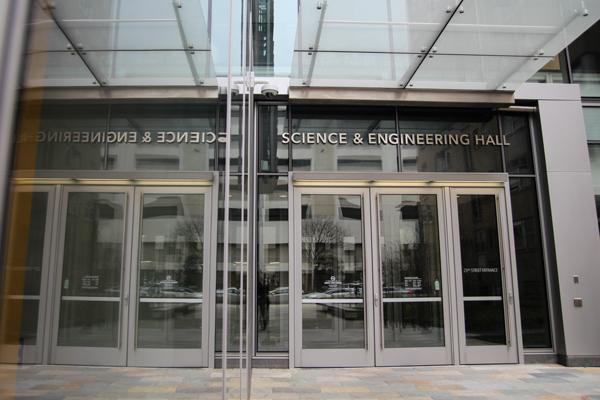Officials in the School of Engineering and Applied Science are charting out their goals for the next five years, the school’s dean said this month.
David Dolling, the dean of the SEAS, said at a Faculty Senate meeting earlier this month that faculty and staff at the school have been working on the new plan for about four months and after a discussion with an advisory council last month, are ready to start writing the plan.
Dolling said at the meeting that some goals of the new plan include maintaining and improving the “strength, quality and productivity” of existing faculty, recruiting and educating the best possible students, and building support for research.
He said one challenge is finding the financial resources needed to accomplish these goals – like building new research laboratories.
“We need revenue streams to support a research intensive school,” Dolling said at the meeting. “Because I think everybody knows that the more successful you get, the more money you need.”
Dolling said in an email that the plan is in its “early stages,” and they are now “brainstorming and researching new ideas.”
Dolling did not provide details on the timeline for implementing the plan or what specific goals he has for SEAS.
Previously, SEAS had been operating under a plan called “SEAS 2020,” which the advisory council and select faculty created in 2008, shortly before Dolling took over as dean. Dolling said the plan, an executive summary with 11 points, was very “quantitative,” with goals of “doubling this or tripling that.” Dolling added that, for the most part, SEAS has met those goals.
Charles Garris, a mechanical and aerospace engineering professor and the chair of the Faculty Senate executive committee, said he thinks SEAS should make a new strategic plan but had not heard of the project until it was announced at the meeting.
“I think Dean Dolling is probably right,” Garris said. “Now is a good time to do some strategic planning, bring people together and start talking about the future and looking at opportunities and how we can plan for them. So I’m strongly in favor of proceeding as Dean Dolling is doing.”
Garris said he does not consider the current plan an official strategic plan because faculty did not vote on implementing it after a committee developed it.
“A strategic plan is only really good when everybody is involved in it, and it’s a lot of work to do it,” he said.
Jay Gore, a professor of engineering at Purdue University, said officials should create strategic plans every five years and that administrators should review those plans annually to determine how effective they are.
“If the plan is strategic, they are able to achieve their goals in a way that they can plan their resources,” he said. “They can apply the most efficient tools to get from point A to point B, so I think that having the strategic plan is critical to set your overall vision.”
Gore said Purdue’s College of Engineering’s strategic plan emphasizes making a “positive impact” on problems involved with energy, health and education through engineering. He added that engineering schools tend to focus their strategic plans on improving research and education.
“Most engineering strategic plans have the goal to provide the best education to their students, and that’s the number one goal both at the graduate and undergraduate level,” he said.







